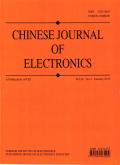Secure Fine-Grained Multi-Keyword Ciphertext Search Supporting Cloud-Edge-End Collaboration in IoT
IF 1.6
4区 计算机科学
Q3 ENGINEERING, ELECTRICAL & ELECTRONIC
引用次数: 0
Abstract
The massive terminals access the Internet of things (IoT) through edge nodes, bringing forth new security and privacy challenges in ciphertext search and data sharing. Meanwhile, existing ciphertext search schemes often overlook lightweight computing paradigms and pay little attention to the search requirements of multiple data owners (DOs)/data users (DUs). To address these issues, we propose a secure fine-grained multi-keyword ciphertext search scheme with cloud-edge-end collaboration computing (SFMS-CC). This SFMS-CC scheme focuses on the efficiency of end users and employs a cloud-edge-end collaborative computing paradigm, effectively offloading the incremental overhead from terminals and achieving low-cost constant overhead for the first time on the DO/DU side. Furthermore, based on public-key cryptography, a ciphertext search framework supporting multi-keyword is presented systematically. Each user is assigned an exclusive search Tok to enhance the user experience. Additionally, by integrating attribute-based encryption, a multi-DOs/multi-DUs model is constructed, seamlessly embedding entity private keys and public keys into encryption, search, decryption, and other steps, ensuring high privacy and security of this scheme. Security analysis demonstrates that the SFMS-CC scheme withstands choose plaintext attack, providing privacy-preserving for outsourced data and user information. Simulation results indicate that the SFMS-CC scheme is efficient and feasible in practice.支持物联网云端协作的安全细粒度多关键字密文搜索
海量终端通过边缘节点接入物联网,给密文搜索和数据共享带来了新的安全和隐私挑战。同时,现有的密文搜索方案往往忽略轻量级计算范式,很少考虑多个数据所有者(DOs)/数据用户(DUs)的搜索需求。为了解决这些问题,我们提出了一种安全的细粒度多关键字密文搜索方案与云边缘协作计算(SFMS-CC)。SFMS-CC方案关注终端用户的效率,采用云边缘协同计算范式,有效地卸载了终端的增量开销,并首次在DO/DU端实现了低成本的恒定开销。在此基础上,系统地提出了一个支持多关键字的密文搜索框架。为了提高用户体验,每个用户都被分配了一个独家搜索Tok。此外,通过集成基于属性的加密,构建了多dos /多dus模型,将实体私钥和公钥无缝嵌入到加密、搜索、解密等步骤中,保证了方案的高度隐私性和安全性。安全性分析表明,SFMS-CC方案能够抵抗选择明文攻击,为外包数据和用户信息提供隐私保护。仿真结果表明,SFMS-CC方案是有效可行的。
本文章由计算机程序翻译,如有差异,请以英文原文为准。
求助全文
约1分钟内获得全文
求助全文
来源期刊

Chinese Journal of Electronics
工程技术-工程:电子与电气
CiteScore
3.70
自引率
16.70%
发文量
342
审稿时长
12.0 months
期刊介绍:
CJE focuses on the emerging fields of electronics, publishing innovative and transformative research papers. Most of the papers published in CJE are from universities and research institutes, presenting their innovative research results. Both theoretical and practical contributions are encouraged, and original research papers reporting novel solutions to the hot topics in electronics are strongly recommended.
 求助内容:
求助内容: 应助结果提醒方式:
应助结果提醒方式:


